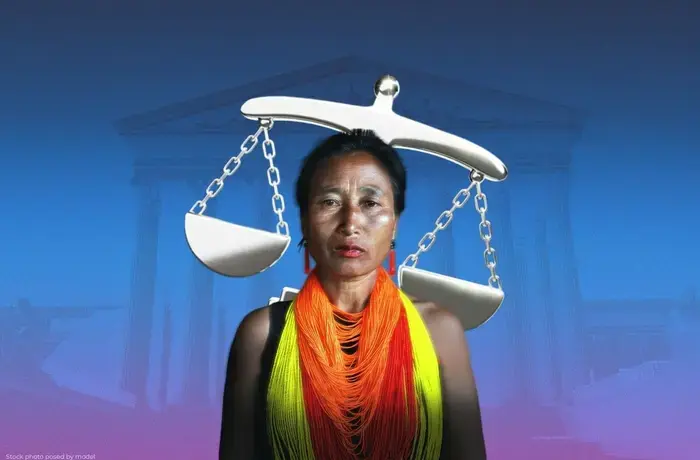At the United Nations, who does what on conflict-related sexual violence?
Conflict-related sexual violence violates international humanitarian law and international human rights law, and it is often a war crime. At the United Nations, various entities play distinct roles, based on agreed mandates, in providing protection and helping survivors and at-risk communities. An understanding of what different entities can and cannot do is vital for activists and civil society organizations seeking international assistance and partnership.
What is UN Women’s role?
UN Women is the main UN entity standing up for the rights, equality and empowerment of all women and girls. On conflict-related sexual violence, it focuses on addressing root causes and prevention as well as helping survivors to seek essential services. UN Women does not have a mandate to independently investigate or verify claims of conflict-related sexual violence, or to coordinate or conduct advocacy on the issue. Other parts of the United Nations carry out these functions.
Who investigates?
The Office of the High Commissioner for Human Rights is mandated to monitor and report on human rights, including sexual violence.
The Security Council may mandate peace or special political missions to document and verify cases of conflict-related sexual violence through a senior women’s protection adviser or a mission human rights office in the absence of an adviser. The senior women’s protection adviser coordinates UN entities in a country to collect relevant information through the Monitoring, Analysis and Reporting Arrangements Working Group, in line with Security Council resolution 1960. Missions regularly report to the Security Council on findings and verification efforts.
Member States may create a commission of inquiry, fact-finding mission, or other investigative or human rights monitoring body. These mechanisms document and verify human rights abuses and violations along with other violations of international law, including sexual violence. They are most often created through the Human Rights Council, but also occasionally through the General Assembly or Security Council. Findings are typically reported one year after an investigation is mandated, and then annually or semi-annually thereafter.
Upon the request of an existing investigation, UN Women may offer technical expertise, including to UN commissions of inquiry and fact-finding missions as well as regional and national investigations. This helps to provide dedicated capacity to document conflict-related sexual and gender-based violence, in line with international standards and a survivor-centred approach.
Who advocates?
The Security Council mandated the Special Representative of the Secretary-General on Sexual Violence in Conflict to conduct advocacy to prevent and respond to conflict-related sexual violence. The Special Representative is often the first—and sometimes the only—part of the UN system to issue statements of concern about allegations of conflict-related sexual violence.
The Special Representative does not document or verify allegations of conflict-related sexual violence. Each year, the office of the Special Representative compiles a report that is issued by the UN Secretary-General. It lists countries where the United Nations, whether through peacekeeping or special political missions or UN-mandated investigations, has verified cases of conflict-related sexual violence. The report draws on consultations within the UN Action Against Sexual Violence in Conflict Network. It is the only UN coordinating body on conflict-related sexual violence; UN Women is a founding member.
When allegations of conflict-related sexual violence arise, UN Women may issue a statement, often jointly with other UN entities mandated to document or verify cases and/or undertake advocacy, including through UN Action.
The Office of the High Commissioner for Human Rights, given its mandate to promote and protect the enjoyment and full realization of all human rights, may also speak out about conflict-related sexual violence. Statements typically detail evidence, share specific information about cases, and cover multiple types of human rights violations.
When allegations arise in countries, what can UN Women do to address them?
While UN Women is not the primary investigator or advocate for preventing or responding to conflict-related sexual violence, it still undertakes a range of activities in individual countries. These align with its mandate to advance gender equality, including in partnership with the UN system.
Two important factors determining UN Women’s support are whether it is present in the country where violations are taking place, and whether the Government is interested in receiving support from UN Women. A lack of either element effectively constrains UN Women’s response.
Where UN Women is present and has government support, responses may include the following, often in collaboration with the UN system as well as women’s and civil society organizations:
- Helping government and civil society service providers to assist victims and survivors of conflict-related sexual violence by offering mental health and psychosocial, legal assistance, economic support and other critical services.
- Assisting women’s civil society organizations to create safe spaces for survivors of conflict-related sexual violence to come together.
- Supporting networks of victims and survivors of conflict-related sexual violence.
- Strengthening the capacity of the national justice and security system to investigate and prosecute conflict-related sexual violence, in line with international standards and following a survivor-centred approach.
- Working with the Government and elected leaders to criminalize conflict-related sexual violence in line with international law, and to adopt and implement laws and policies so that victims and survivors of conflict-related sexual violence may access services and justice, including reparations.
- Providing gender expertise to UN investigations.






